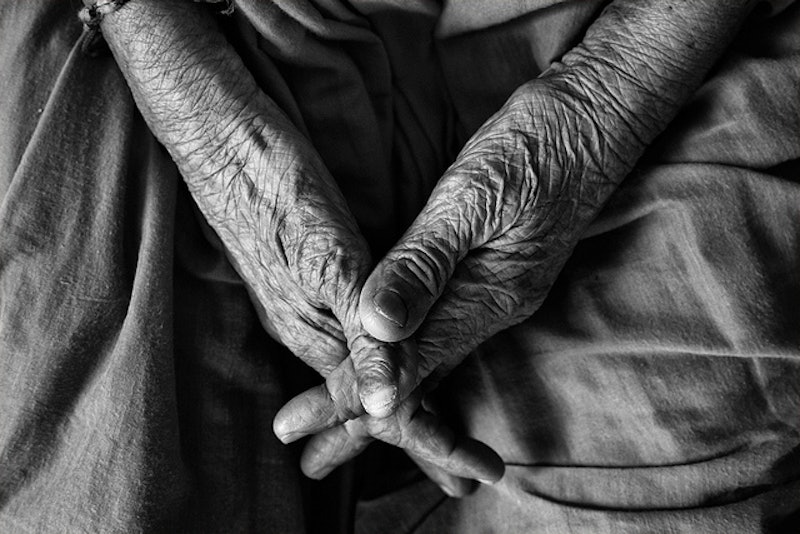
When you ask someone "How old are you?", you're usuall asking how many calendar years they've been alive. However, chronological age may not be as important as how "old" our bodies actually are. A new test has been developed by scientists to show you how well you are aging — and researchers from King's College London actually think your biological age holds more importance than your chronological age. You might want to listen up to these findings.
In order to study biological age, the research team created a test that examines 150 genes for signs of aging, with the results producing what they call an "aging signature" for any individual who takes it. Explained Professor Jamie Timmons to BBC News, "There's a healthy aging signature that's common to all our tissues, and it appears to be prognostic for a number of things including longevity and cognitive decline." Although this test can't be used for those under 40, the test can analyze how well your body is aging biologically after reaching this chronological milestone.
After the test was developed, the researchers gave it a try on a group of 70-year-old Swedish men. The idea was to see how well the men were aging, and whether that information could be used to accurately predict who might die in the near future — and apparently it worked. As Timmons put it, "You could actually pick out people who had almost no chance of being dead, and you have people who had an almost 45 percent chance of being dead." Needless to say, the biological age test is huge news for science.
Right now, scientists are in the process of planning how the test might be used for other health screenings and processes of prevention. The hope is that it could be used to inform individuals and help them to take preventative measures to slow the aging process. Here are just a few of the ways the researchers plan to use this new test to work towards positive health outcomes:
1. Organ Transplant Screening
Plans are being put in place to use the biological age test to pilot a screening that would see if those who are chronically old, but biologically young could donate organs safely. If successful, it could result in more organ donors, leading to more saved lives.
2. Better Cancer Screenings
The King's College research team says that this new aging test could allow those who have a high biological age to get tested at a young chronological age, which could be a huge measure in prevention. Catching cancer early makes it easier to stop its growth in its tracks.
3. Preventing Dementia
Another huge breakthrough this test could lead to is dementia prevention — it could be used on younger folks to see who is most at risk for developing the disease. "What we really need now are tools to identify those most at risk in 10, 20 years time and I think that's where this research will really have an impact," Timmons told BBC News. There is no sure way of preventing dementia currently, so this test could possibly help to open up that door.
Of course, it's not all good news; there's also speculation that the test might result in higher insurance premiums if companies decide to start using it on its customers. But we'll have to wait for more trials to be done before we can know the full impact this test could have on healthcare — and hey, if it might help keep us healthier longer, it's definitely worth looking into!
Image: Chandar/Flickr